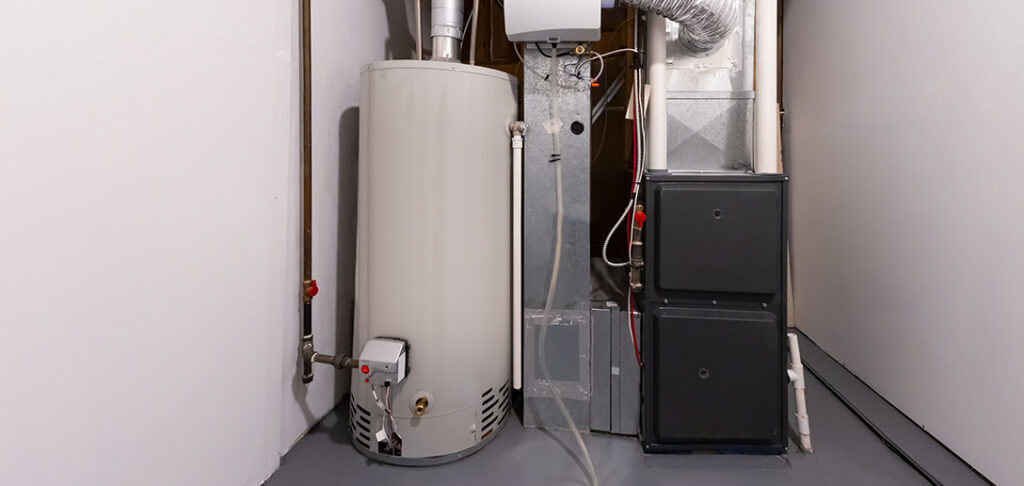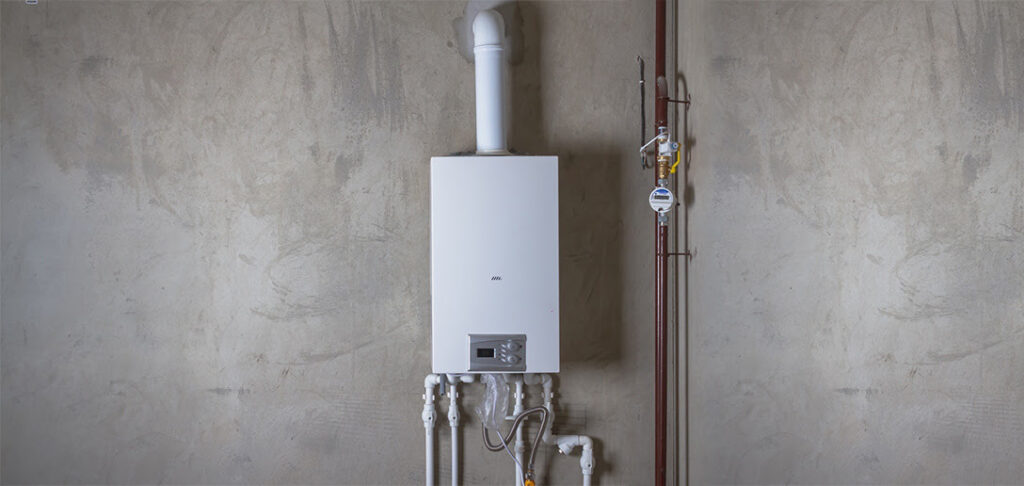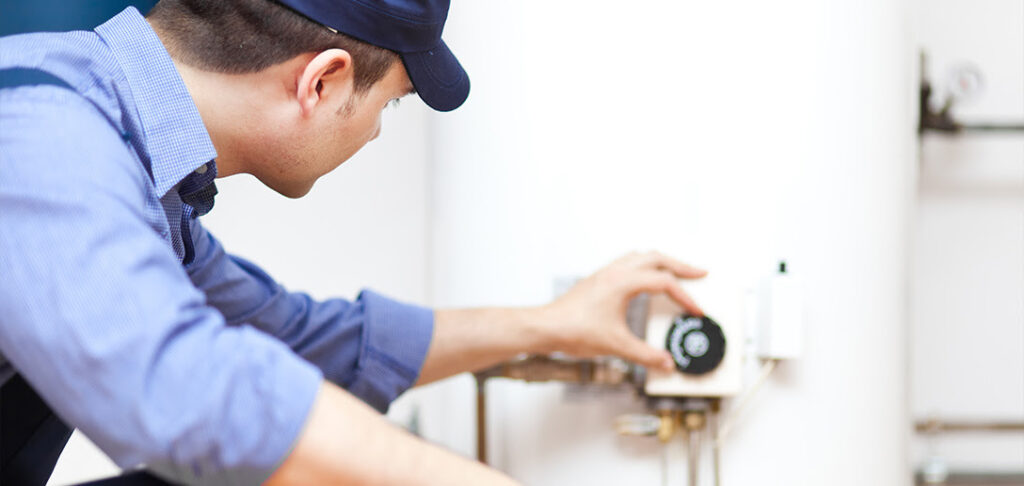Hot Water Heater Installation, Hot Water Heaters, Tankless, Water Heater Installation
You need hot water at home to enjoy bathing, cooking, and cleaning—so it’s critical that your hot water heater can handle the demands of your ho...
You need hot water at home to enjoy bathing, cooking, and cleaning—so it’s critical that your hot water heater can handle the demands of your household. The more you know about how water heaters work, the more prepared you’ll be to take good care of yours and replace it when the time comes.
Below, we’ll explain the ins and outs of water heaters—what to consider before a new water heater installation, how to tell when your heater needs repairs, when to schedule routine maintenance, and more. With our help, you should have no trouble calling for help with your water heater when the time comes and recognizing the signs when yours is due for replacement.
See also: hot water heater repairs
How Does a Water Heater Work?
The science behind water heaters is pretty simple: once water from the municipal water supply enters your home’s plumbing system, a heat source raises its temperature before sending it through the pipes where it can be used by operating different fixtures (sinks, tubs, etc.).
However, the specific parts that make this happen will be different depending on the kind of water heater you have. Let’s look at the two main types:
Different Types of Water Heaters
Most homes in Alberta use either a hot water tank or a tankless water heater. Here’s how each system works:

Hot Water Tanks
These systems have a large tank that stores water and heats it up so it’s ready to be used on demand. Hot water tanks normally include:
- A cold water pipe that moves water from your local water supply into the tank
- Heating elements that warm the contents of the tank
- A hot water pipe, which carries hot water that rises to the top of the tank into your home
- A safety valve to let water out of the tank if the heat or pressure inside gets too high
Hot water tanks keep the water inside warm even when you’re not using it—but if you use too much hot water at once, you may run out.

Tankless Hot Water Heaters
Tankless water heaters connect a heat source directly to the pipes that carry water throughout your home and heat it on demand when the need arises. Their design means they take up much less space than hot water tanks.
Tankless heaters normally consist of:
- A heat exchanger attached to your water supply lines
- A burner and combustion fan
- A pressure release valve and sensor to regulate flow
Because tankless hot water heaters produce hot water on demand, you won’t run out of hot water if your home uses one—but their flow rate can be lower than with hot water tanks.
What Kind of Water Heater Is Best for Alberta Homes?
You’ll find hot water tanks and tankless water heaters throughout Alberta—and at Action Furnace, we provide installations and repairs for both kinds. Knowing the pros and cons of each can help you choose the system that’s best for your home.
See also: Hot Water Tanks vs Tankless Water Heaters. Which is Best For Your Home?
Pros & Cons of Hot Water Tanks
Pros
- Less expensive to install
- Easy to replace
- Produce a strong rate of flow
Cons
- Less energy efficient
- Can run out of hot water
- Take up more physical space
Pros & Cons of Tankless Water Heaters
Pros
- More energy efficient
- Don’t run out of hot water
- Take up less room
Cons
- Higher upfront cost
- Retrofitting can be difficult
- Flow rate can be lower unless upgraded with a storage tank
Tankless water heaters are more efficient than hot water tanks, but because they’re also more expensive, it takes time to make back the costs of switching. If you’re planning to use a tankless heater for 12 to 20 years and keep it properly maintained during that period, a tankless system can be a smart investment. Otherwise, there’s nothing wrong with continuing to use hot water tanks—especially since most newer models are increasingly energy efficient.
If you do consider a tankless heater, contact us for help choosing an appropriate brand and model. While most tankless heaters are powerful enough to heat water even in Alberta’s cold climate, certain electric models are better suited to warmer regions and may struggle to heat water efficiently. We’ll be able to show you options you can count on.

Water Heater Maintenance for Alberta Homeowners
Every water heater needs regular maintenance and professional service at regular intervals. Here’s an overview of what you can do on your own and what you should call us for help with:
DIY Maintenance For Water Tanks
Help keep your hot water tank healthy by:
- Adjusting the thermostat: simply take off the cover and use a screwdriver to turn the dial—120 degrees is optimal for most homes.
- Insulating your pipes: wrap foam around the hot and cold water pipes attached to your tank to improve energy efficiency and prevent condensation in warmer weather.
- Wrap the tank: use an insulating blanket and foil tape to improve your tank’s efficiency, making sure not to cover the top if it uses oil or gas as a heat source.
DIY Maintenance For Tankless Systems
Help make sure your tankless heater is running right by:
- Cleaning and replacing the water filter: do this annually for most systems.
- Cleaning and replacing the air filter: for gas-powered tankless heaters that produce exhaust only.
- Wrap the pipes: use foam to insulate the pipes leading to and from your tankless heater.
Professional Hot Water Heater Repairs
Many jobs for hot water tanks and tankless systems require advanced tools and knowledge. Call us when it’s time for any of the following water heater repairs:
- Draining and flushing sediment from your hot water tank: this helps prevent rusting, which leads to leaks.
- Descaling your tankless water heater: we’ll use a pump to cycle descaling solution through the system and remove debris.
- Testing the TPR valve: this valve ensures heat and pressure in water tanks stay at safe levels.
- Checking the anode rod: changing this rod out every few years prevents corrosion in hot water tanks and helps them last longer.
For best results, have us visit your home and inspect your water heater annually. We can also investigate leaks, strange noises, temperature and flow issues, and more.
Alberta Water Heater FAQ
How Much Do Water Heaters Cost to Run?
The average Canadian uses approximately 75 L of hot water per day, and hot water heating makes up 17.2% of the energy used in a typical Canadian household.
Since the average Alberta household spends $362.50 on monthly utilities, that comes out to about $748.20 every year for water heating costs. But buying a high-efficiency water heater can keep these numbers down—ask us about installing an ENERGY STAR water heater in your home.
How Do You Know Your Water Heater Is Running Normally?
Your water heater should produce a steady flow of hot water and be virtually silent when it’s working properly. Hot water tanks and tankless water heaters are designed to be in the background—there when you need them, and easy to ignore when you don’t.
Occasionally, you might hear a hot water tank ticking—while this can be alarming at first, it may not be cause for concern. Some tanks have heat trap nipples that boost their efficiency and produce these noises normally. On tanks without these components, ticking can be the sign of a loose pipe strap or a change in water pressure. If you’re not sure what’s making your tank tick, call us and we’ll be able to tell you.
How Do You Know Your Water Heater Needs Service?
Signs your water heater needs professional service include:
- Strange noises coming from hot water tanks (including popping, rumbling, hissing, whistling, or banging)
- Running out of hot water too fast
- Steadily increasing utility bills
- Water pooling or leaking
- Problems with appliances that use water (like dishwashers and laundry machines)
Our pros will be able to tell you what’s wrong with your hot water heater and recommend a solution.
How Long Does it Take to Install a Water Heater?
Installing a new hot water tank normally takes 1-2 hours, depending on the size. The installation location and condition of your home can also affect how long it takes.
Installing a tankless hot water heater normally takes 1-3 hours, as these systems can be more complex. We’ll provide you with an accurate timeline for the job along with our quote when you call.
How Long Does a Water Heater Last?
Most gas powered hot water tanks can last 8-10 years with routine maintenance and regular service, while electric hot water tanks can last from 10-15. Tankless water heaters may last longer—from 15-20 years in some cases, as long as they are properly cared for.
When Should I Replace My Hot Water Heater?
It may be time for a new hot water heater if your current system:
- Is old and no longer energy efficient (find the average lifespan of your water heater above)
- Is leaking (leaking water heaters normally need to be replaced instead of repaired)
- Produces discolored water (look out for water that is tinted or rust-coloured)
Keep Your Water Hot & Your Home Happy
Action Furnace can diagnose any hot water heater problem and provide you with solutions. We’ll either recommend repairs and give you an honest quote for our work or suggest a new water heater and show you options that will fit the needs of your household. Learn more about how we can help—contact us now and talk to a water heater expert in Calgary, Edmonton, or Red Deer.
